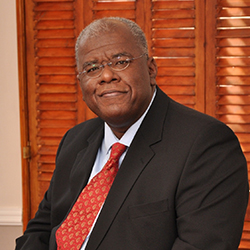
Prof Jonathan Jansen |
Prof Jonathan Jansen, Vice-Chancellor and Rector of the University of the Free State (UFS), has been chosen from an exceptionally impressive pool of alumni as one of three inaugural recipients of the Stanford Graduate School of Education’s Excellence in Education Award.
Not only did Prof Jansen obtain a doctorate degree in 1991 from Stanford University (USA), but also continued his studies there as a Fulbright Scholar from 2007 to 2008. His work as an advocate for intellectual freedom, and in leading the UFS toward racial integration, is widely recognised as a model for higher education. “Prof Jansen’s scholarship on these topics has an international audience and impact, and we are honoured to count him as one of our own,” said Dr Deborah Stipek, Dean of the Stanford Graduate School of Education and Professor of Education at Stanford University.
According to Dr Stipek, the Excellence in Education Award signals a critical step in the School’s drive to recognise, and raise the profile of, the transformative work of the alumni. The other two recipients are Helen Kim, Vice-Principal, Eastside College Preparatory School in East Palo Alto, California and Carla Pugh, Vice-Chair, Education and Patient Safety, Clinical Director, University of Wisconsin Clinical Simulation Programme.
"I think they made a mistake; after all, there have been so many illustrious alumni over the decades. I am, nonetheless, humbled and grateful for this wonderful act of recognition."
Prof Jansen will receive the award on 23 October 2015 at Stanford University in Palo Alto during the Graduate School of Education’s Alumni Award reception.